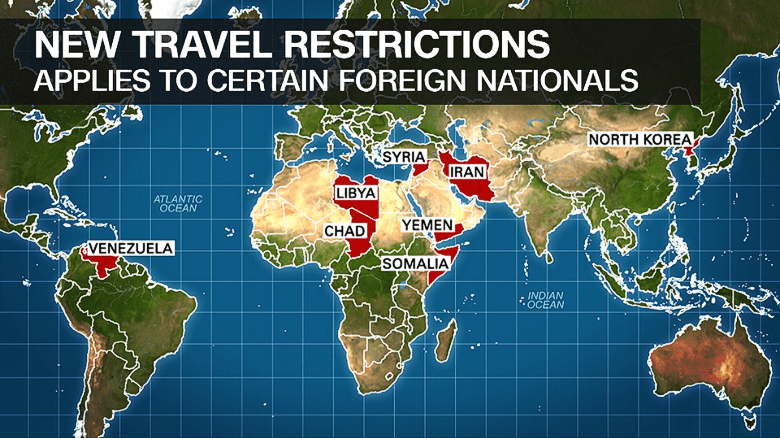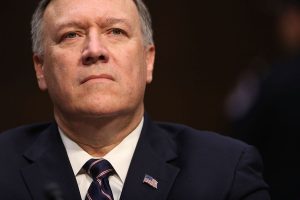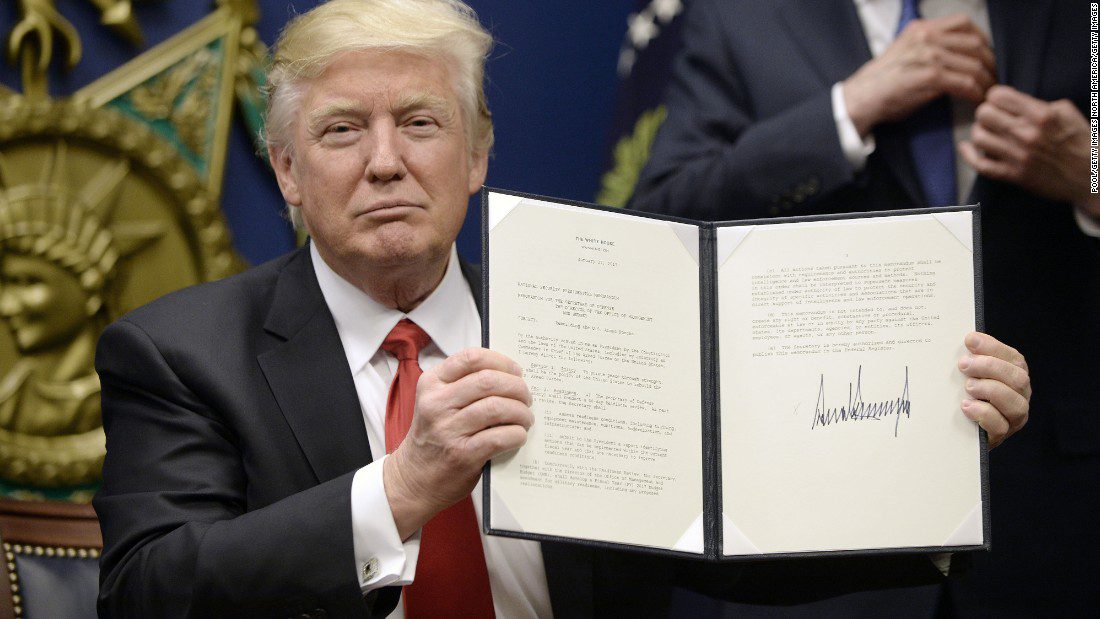Today, the Supreme Court is due to hear arguments on the third version of the travel ban policy President Trump first implemented a week after taking office in January 2017. This third iteration of the ban, which was issued in September 2017, permanently excluded citizens of Libya, Iran, Somalia, Syria, Yemen, Chad, North Korea, and government officials from Venezuela from entering the United States unless they can obtain special waivers. Chad was since removed from the list earlier this month and North Korea and Venezuela are not a part of today’s challenge.

Source: CNN
If the Supreme Court turns down the third version of the travel ban on statutory grounds, the ruling’s immediate effect will be to strengthen the separation of powers. This will enforce Congress’ authority to make a ruling in this field.
If, however, the Supreme Court upholds the third version of the travel ban, it will be devastating for the millions of people who are now banned indefinitely from entering the United States. When the people in these countries desperately seek refuge, they will have nowhere safe to go. This ruling may also indicate to the rest of the world that the highest court in the U.S. is unwilling to protect the constitutional command of religious equality.
Regardless, the conservative-majority Supreme Court has a huge decision to make that tests the limits of presidential power.
Former officials from Republican and Democratic administrations, including CIA directors, national intelligence and counter-terrorism chiefs, top diplomats with records working in the Middle East, secretaries of states, and dozens of top-ranked retired admirals and generals have come out strongly against the Trump travel ban. They all lent their opinions and expertise in three amicus curiae briefs.
Among the former officials is former Central Intelligence Agency Director Gen. Michael Hayden, who served under Presidents George W. Bush and Barack Obama. In an interview with NPR, Hayden pointed out that “there is not one single official willing to swear on the record to a national-security-based need for the travel ban. Go look at anyone who is occupying our old positions now and you will be hard-pressed to find statements by them in support of this Executive Order.” Hayden said that this is the reason that “the retired guys” decided to speak up.
In a timely relation to this Supreme Court case, the open secretary of state seat may be filled sooner than we thought.

Pictured: Mike Pompeo
Current Central Intelligence Agency Director Mike Pompeo was recently nominated by Trump to be secretary of state. On Monday night, the Senate Foreign Relations Committee met, which resulted in an almost certainty that Pompeo would be confirmed as the next top U.S. diplomat. The panel, however, could not send its confirmation to the full Senate since one of the 11 Republican members was not present for the vote.
President Trump has spent about a month acting without a top U.S. diplomat. During this time, Trump held Syria liable for a suspected chemical attack and threatened a trade war with China.
The full Senate will be voting later this week to confirm Pompeo.
Stay tuned for updates on Pompeo’s confirmation and on the results of this very important Supreme Court case on the third version of Trump’s travel ban.
You can reach out to the current federal officials to get a quote on their opinions or to express your concerns by logging into Leadership.
Don’t have an account? Get started today.






